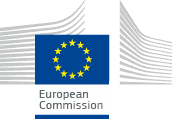 In February 2022, we covered the proposed legislation that would relax Germany’s position on the discovery of documents under the Hague Evidence Convention (see here). The draft bill that contained this proposal alongside a whole host of other issues has been reviewed in depth by two Max Planck Institutes (MPI), namely by the Hamburg Institute for Comparative and International Private Law and the Luxembourg Institute for International, European and Regulatory Procedural Law. The combined academic fire power was aimed at two bills in the field: Read More
In February 2022, we covered the proposed legislation that would relax Germany’s position on the discovery of documents under the Hague Evidence Convention (see here). The draft bill that contained this proposal alongside a whole host of other issues has been reviewed in depth by two Max Planck Institutes (MPI), namely by the Hamburg Institute for Comparative and International Private Law and the Luxembourg Institute for International, European and Regulatory Procedural Law. The combined academic fire power was aimed at two bills in the field: Read More
Tag: EU Service Regulation
Civil Justice and Private International Law: EU Commission Issues No-Deal Brexit Gudiance
 On 27 August 2020, the EU Commission published an updated “Notice to Stakeholders on the Withdrawal of the United Kindgom and EU Rules in the Field of Civil Justice and Private International Law”. Read More
On 27 August 2020, the EU Commission published an updated “Notice to Stakeholders on the Withdrawal of the United Kindgom and EU Rules in the Field of Civil Justice and Private International Law”. Read More
Facebook Does Speak German: Valid Service of German-language Documents in Ireland
 Back in December 2019, the headline to my post on that very topic still had a question mark: “Does Facebook speak German?” I had reported on what appeared to be only the second decision by a German court of appeals (Oberlandesgericht) on the issue whether Facebook Ireland, the legal entity operating Facebook’s German activities, is entitled to refuse service of German-language court documents under Article 8 of the European Service Regulation.* Read More
Back in December 2019, the headline to my post on that very topic still had a question mark: “Does Facebook speak German?” I had reported on what appeared to be only the second decision by a German court of appeals (Oberlandesgericht) on the issue whether Facebook Ireland, the legal entity operating Facebook’s German activities, is entitled to refuse service of German-language court documents under Article 8 of the European Service Regulation.* Read More
Case of the Week: Does Facebook understand German?
 The question whether Facebook understands German came before the Court of Appeals (Oberlandesgericht) München in the context of Article 8 of the European Service Regulation. Pursuant to this provision, the addressee of a document
The question whether Facebook understands German came before the Court of Appeals (Oberlandesgericht) München in the context of Article 8 of the European Service Regulation. Pursuant to this provision, the addressee of a document
“may refuse to accept the document to be served at the time of service or by returning the document to the receiving agency within one week if it is not written in, or accompanied by a translation into, either of the following languages: (a) a language which the addressee understands; or (b) the official language of the Member State addressed or, if there are several official languages in that Member State, the official language or one of the official languages of the place where service is to be effected.” Read More
